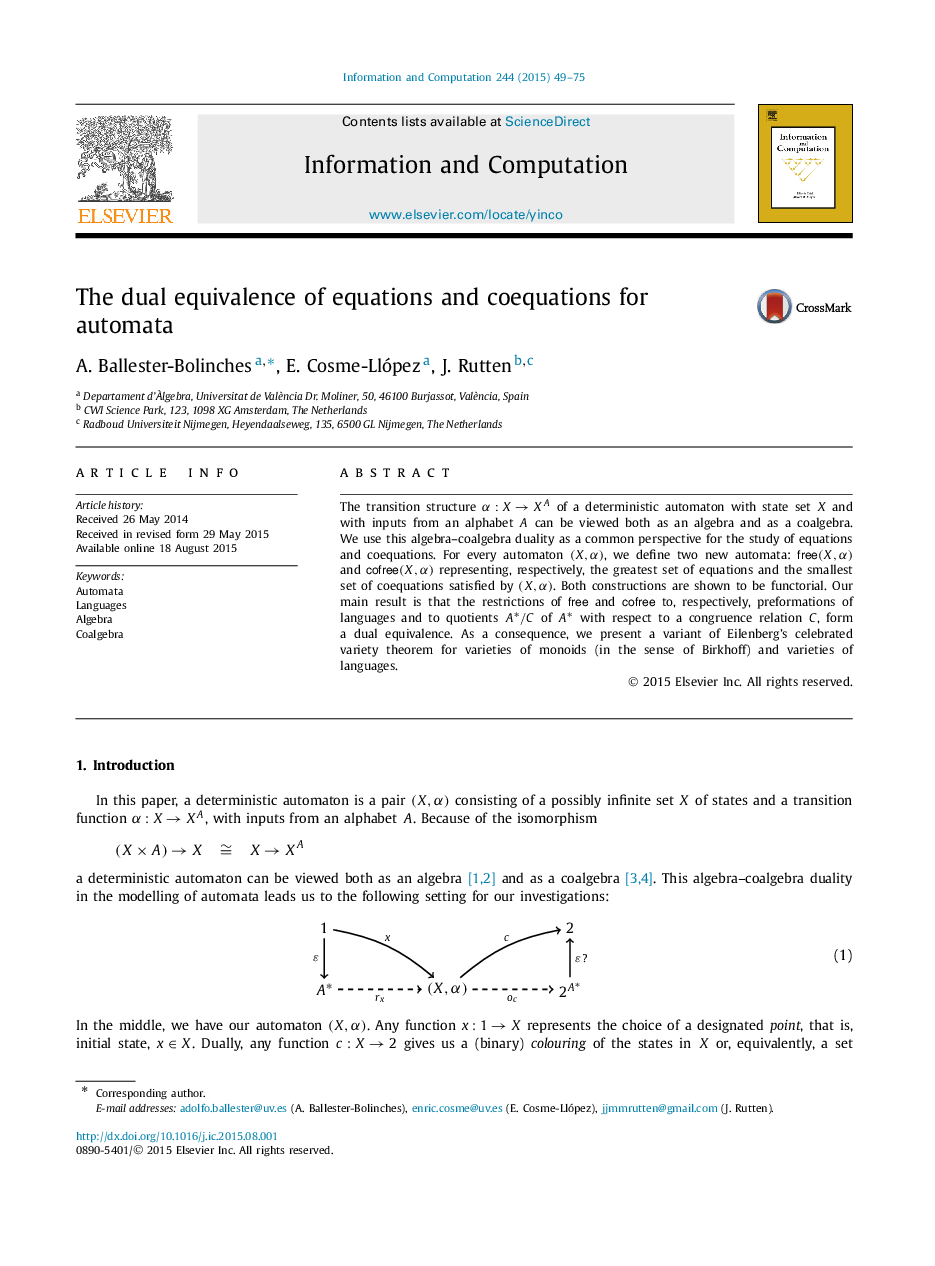| Article ID | Journal | Published Year | Pages | File Type |
|---|---|---|---|---|
| 425982 | Information and Computation | 2015 | 27 Pages |
The transition structure α:X→XAα:X→XA of a deterministic automaton with state set X and with inputs from an alphabet A can be viewed both as an algebra and as a coalgebra. We use this algebra–coalgebra duality as a common perspective for the study of equations and coequations. For every automaton (X,α)(X,α), we define two new automata: free(X,α)free(X,α) and cofree(X,α)cofree(X,α) representing, respectively, the greatest set of equations and the smallest set of coequations satisfied by (X,α)(X,α). Both constructions are shown to be functorial. Our main result is that the restrictions of free and cofree to, respectively, preformations of languages and to quotients A⁎/CA⁎/C of A⁎A⁎ with respect to a congruence relation C, form a dual equivalence. As a consequence, we present a variant of Eilenberg's celebrated variety theorem for varieties of monoids (in the sense of Birkhoff) and varieties of languages.
